Quantum Computing: New Fuzz Word?..

Quantum computing is rapidly transitioning from a niche academic field to a transformative force in business and industry. While still in its early stages, the technology is making significant strides toward real-world applications, with both startups and established tech giants driving innovation. Small companies such as IonQ (IONQ) and Rigetti Computing (RGTI) are playing a crucial role by offering quantum-as-a-service (QaaS) solutions, allowing businesses to access quantum computing resources via the cloud without the need for costly in-house hardware. These firms are focusing on improving quantum hardware reliability and scaling up the number of qubits while also developing software platforms to simplify adoption.
Hyperscalers on Their Run
At the same time, large technology firms like Amazon, Microsoft, Google, and IBM are making massive investments in quantum computing, aiming to integrate it with their existing cloud and AI infrastructure. Amazon’s AWS Braket provides access to quantum processors from D-Wave, IonQ, and Rigetti, allowing businesses to experiment with quantum computing without purchasing their own quantum systems. Amazon is also working on its own quantum hardware, which could disrupt the industry by offering vertically integrated quantum solutions in the future. Microsoft’s Azure Quantum takes a different approach, focusing on a hybrid quantum-classical model, where quantum algorithms are integrated into classical computing workflows. Microsoft is particularly invested in topological qubits, a unique type of qubit that could lead to more stable and scalable quantum processors.
And What About IBM?..
IBM, one of the longest-standing players in the quantum race, has an ambitious roadmap to build quantum processors with over 1,000 qubits by 2025 and aims for fault-tolerant quantum computing within the next decade. IBM’s Quantum Network includes collaborations with companies, universities, and research institutions worldwide to drive practical quantum applications. The company has already deployed its Eagle processor, featuring 127 qubits, and is working toward the next-generation Condor processor, which will have 1,121 qubits.
The Undisputed Leader
Google is also a key contender in quantum computing, making significant progress through its Quantum AI division. Google’s Sycamore quantum processor demonstrated quantum supremacy in 2019 by performing a calculation in 200 seconds that would take the most powerful supercomputer over 10,000 years. Since then, Google has been working on improving error correction and scaling its quantum systems for commercial applications. In 2023, Google announced breakthroughs in reducing quantum errors, a major step toward making quantum computing viable for practical problems in finance, logistics, pharmaceuticals, and artificial intelligence.
2025: A Crucial Year for Quantum Computing
Looking ahead, 2025 is set to be a pivotal year for the quantum computing industry, as several key developments are expected to take place:
- IonQ and Rigetti Computing are set to release next-generation quantum processors with improved coherence times and error rates, moving closer to practical, large-scale applications.
- IBM plans to introduce the Condor quantum processor with over 1,000 qubits, marking a major step toward scalable quantum computing.
- Microsoft and Google are expected to unveil new breakthroughs in quantum error correction, a critical factor in making quantum computing reliable for commercial use.
- Amazon may accelerate its in-house quantum hardware development, potentially challenging IBM and Google in the quantum hardware market.
- Government and private-sector investment in quantum technology is likely to increase, with the U.S., China, and the EU all competing for leadership in this strategic field.
Market Outlook and Industry Growth
The global quantum computing market is projected to grow at a CAGR of 30-40%, with estimates suggesting it could reach $50 billion by 2030. Leading firms such as IBM, Google, Microsoft, Amazon, and IonQ are expected to dominate the sector, while emerging startups continue to drive specialized advancements. Governments worldwide are also investing heavily in quantum research, recognizing its potential to revolutionize cryptography, material science, finance, and artificial intelligence. As quantum computing matures, early adopters across finance, pharmaceuticals, and logistics are expected to gain a significant competitive advantage. Companies are already exploring quantum applications for portfolio optimization, drug discovery, and supply chain optimization, demonstrating that while mainstream adoption may still be years away, quantum computing is no longer just theoretical—it is becoming an integral part of future technological infrastructure.

Dr. Viktor Kalm is a Senior Investment Analyst at Alpha Spread. He has over seven years of experience in corporate finance, specializing in financial modeling, business valuation, and strategic planning services. Previously, as a hedge fund manager, he focused on private equity management, consistently delivering positive returns to his clients.

Dr. Viktor Kalm is a Senior Investment Analyst at Alpha Spread. He has over seven years of experience in corporate finance, specializing in financial modeling, business valuation, and strategic planning services. Previously, as a hedge fund manager, he focused on private equity management, consistently delivering positive returns to his clients.



































 You don't have any saved screeners yet
You don't have any saved screeners yet
